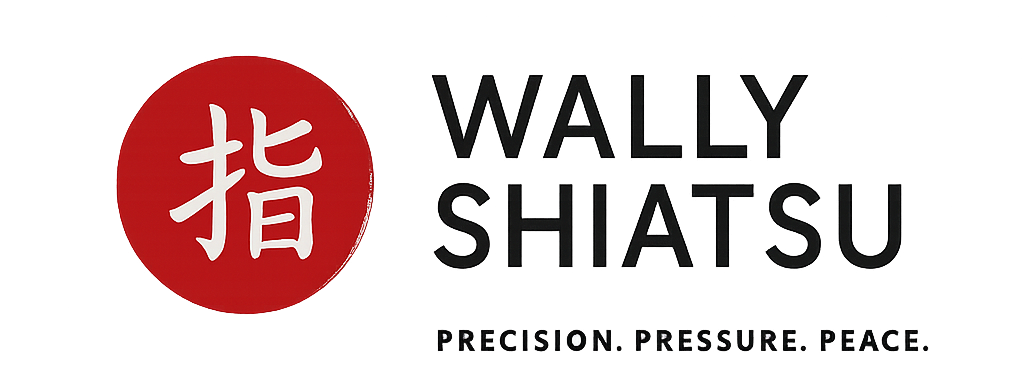Listen to the article
Understanding the Importance of Hydration After Massage for Muscle Recovery
How Hydration Affects Muscle Performance
Hydration plays a crucial role in muscle performance. When muscles are well-hydrated, they function more effectively. Dehydration can lead to fatigue, cramps, and decreased strength. Think of water as the oil in a well-running machine; without it, everything can grind to a halt. After a massage, the body needs extra water to help restore balance and support muscle function.
The Role of Water in Muscle Recovery
Water is essential for muscle recovery. It helps to flush out toxins that accumulate during a massage. These toxins can cause soreness if not removed. Additionally, water aids in nutrient transport, ensuring that muscles receive the necessary vitamins and minerals for healing. This helps the body recover faster and feel better overall.
Water Intake Recommendations After Massage
After a massage, it is important to drink enough water. Here are some simple guidelines:
| Activity Level | Recommended Water Intake |
|---|---|
| Light Activity | 8-10 ounces |
| Moderate Activity | 12-16 ounces |
| Intense Activity | 16-24 ounces |
These recommendations can help guide hydration efforts post-massage. Listening to the body is key; if feeling thirsty, it’s a sign to drink more water.
The Connection Between Massage Benefits and Hydration
How Massage Enhances Fluid Movement in Muscles
Massage therapy plays a significant role in promoting fluid movement within muscles. When a therapist applies pressure, it stimulates blood flow and encourages lymphatic drainage. This process helps to transport nutrients and oxygen to muscle tissues while also removing waste products. The manipulation of soft tissues during a massage enhances the flow of interstitial fluid, which is crucial for muscle health. For more insights on the benefits of massage therapy, check out the incredible benefits of massage therapy.
The Impact of Dehydration on Massage Effects
Dehydration can severely impact the effectiveness of a massage. Without adequate hydration, muscles may become stiff and less pliable. This can lead to discomfort during the session and reduce the overall benefits of the treatment. When the body lacks water, it struggles to recover from physical stress, making it essential to maintain proper fluid levels.
| Effect of Dehydration on Massage | Description |
|---|---|
| Reduced Flexibility | Stiff muscles hinder the massage experience. |
| Increased Discomfort | Pain during the session can occur without hydration. |
| Slower Recovery | Dehydrated muscles take longer to heal. |
Maximizing Massage Benefits with Proper Hydration
To truly maximize the benefits of a massage, it is crucial to stay hydrated. Drinking water before and after the session can help in several ways:
- Enhances Muscle Recovery: Proper hydration supports muscle recovery, allowing for quicker healing.
- Improves Massage Effectiveness: Well-hydrated muscles respond better to massage techniques, making the treatment more effective.
- Promotes Overall Wellness: Adequate fluid intake contributes to overall health, enhancing the body’s ability to function optimally. For more on enhancing well-being, explore the power of relaxation.
In summary, the importance of hydration after massage for muscle recovery cannot be overstated. Staying hydrated not only enhances the massage experience but also supports muscle health and recovery.
Post-Massage Hydration: Best Practices
Ideal Water Intake After a Massage Session
After a massage, hydration plays a crucial role in recovery. It is recommended to drink at least 16-24 ounces of water to help flush out toxins released during the massage. This amount helps to replenish fluids lost and supports muscle recovery.
Timing Your Hydration for Optimal Recovery
Timing is key when it comes to hydration. Drinking water immediately after a massage can be beneficial, but it’s also important to continue hydrating throughout the day. Here’s a simple schedule:
| Time | Action |
|---|---|
| Immediately | Drink 16-24 ounces of water |
| 1-2 hours | Drink another 8-12 ounces |
| Throughout the day | Sip water regularly, aiming for an additional 32 ounces |
This schedule allows the body to absorb water efficiently and aids in muscle recovery.
Signs of Dehydration to Watch For After Massage
After a massage, it’s essential to be aware of signs of dehydration. Here are some common symptoms to look out for:
- Dry mouth
- Fatigue
- Headaches
- Dizziness
- Dark yellow urine
Recognizing these signs early can help in taking prompt action to hydrate and support recovery.
Hydration and Muscles: Why It Matters
The Science Behind Muscle Soreness and Hydration
Muscle soreness often follows physical activity, especially after a workout or massage. This soreness can be linked to a lack of hydration. When the body is dehydrated, it struggles to flush out toxins and repair muscle tissues. Water plays a crucial role in transporting nutrients and oxygen to the muscles. Without enough water, muscles may feel fatigued and sore.
How Hydration Helps Prevent Muscle Cramps
Muscle cramps can be a painful experience. They occur when muscles contract involuntarily. Dehydration is a common cause of these cramps. Staying hydrated helps keep muscles flexible and reduces the risk of cramping. Drinking water before, during, and after exercise can help maintain muscle function and prevent those unexpected cramps.
The Link Between Hydration and Muscle Health
Hydration is essential for overall muscle health. When the body is well-hydrated, it can perform better, recover faster, and feel less sore. Here’s a quick overview of how hydration impacts muscle health:
| Aspect | Impact of Hydration |
|---|---|
| Nutrient Transport | Helps deliver nutrients to muscles |
| Muscle Recovery | Aids in repairing and rebuilding muscle tissue |
| Flexibility | Keeps muscles supple and reduces cramps |
| Overall Performance | Enhances endurance and strength during activities |
In summary, the importance of hydration after massage for muscle recovery cannot be overstated. Drinking enough water not only helps muscles recover but also keeps them functioning at their best. Staying hydrated is a simple yet effective way to support muscle health and avoid discomfort.
Benefits of Drinking Water for Recovery
How Water Aids in Nutrient Delivery to Muscles
Water plays a crucial role in delivering nutrients to muscles. When someone drinks water, it helps transport vitamins and minerals through the bloodstream. This process is essential for muscle recovery after a massage. Proper hydration ensures that muscles receive the nutrients they need to heal and grow. Without enough water, the body struggles to absorb these vital nutrients, which can slow down recovery.
The Role of Hydration in Reducing Inflammation
Staying hydrated is key to reducing inflammation. When muscles are sore or inflamed after a massage, water helps to flush out toxins and reduce swelling. It acts like a natural coolant, soothing sore muscles and speeding up recovery. Drinking enough water can also help prevent cramps and stiffness, making it easier to get back to daily activities.
| Benefit of Hydration | Description |
|---|---|
| Reduces inflammation | Helps to soothe sore muscles and decrease swelling. |
| Prevents cramps | Keeps muscles flexible and reduces the risk of cramping. |
| Aids nutrient delivery | Ensures that muscles receive essential vitamins and minerals. |
Long-Term Recovery Benefits of Staying Hydrated
Over time, maintaining proper hydration can lead to significant recovery benefits. It can improve overall muscle function and enhance performance in physical activities. Staying hydrated helps keep energy levels high, enabling individuals to engage in their favorite activities without feeling fatigued. Additionally, consistent hydration supports overall health, making it easier to bounce back from workouts and massages alike.
Stress Relief and Hydration: A Holistic Approach
The Psychological Benefits of Staying Hydrated
Staying hydrated is essential for mental clarity and overall well-being. When a person drinks enough water, they often feel more alert and focused. Dehydration can lead to feelings of fatigue and irritability, which can add to stress levels. By keeping the body well-hydrated, one can experience a boost in mood and a greater sense of calm.
How Hydration Supports Overall Wellness After Massage
After a massage, hydration plays a crucial role in muscle recovery. Water helps flush out toxins released during the massage and aids in the healing of sore muscles. Proper hydration can also prevent cramping and enhance flexibility. Below is a table illustrating the benefits of hydration post-massage:
| Benefit | Description |
|---|---|
| Flushes Toxins | Removes waste products from the body post-massage. |
| Reduces Muscle Soreness | Helps in muscle recovery and alleviates discomfort. |
| Enhances Flexibility | Keeps muscles supple and reduces stiffness. |
| Boosts Energy Levels | Increases overall energy and reduces fatigue. |
Incorporating Hydration into a Stress Relief Routine
To make hydration a part of a stress relief routine, one can follow simple steps:
- Set reminders: Use phone alarms to drink water regularly.
- Flavor it up: Add fruits like lemon or berries to make water more enjoyable.
- Carry a water bottle: Keeping a bottle handy encourages consistent sipping throughout the day.
By integrating these practices, individuals can cultivate a habit of hydration that supports their mental and physical health.


